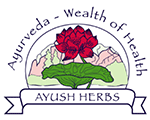HORSE GRAM HEALTH BENEFITS – KULATH DAL KHICHDI FOR HEALTH BENEFITS
Horse gram health benefits: Kulath Dal khichdi is a good and easy meal to cook during the winters. Kulath dal has a lot of health benefits which are discussed at the end of the recipe.
RECIPE: KULATH DAL KHICHDI
Ingredients:
- Kulath dal/horse gram 1 bowl
- Sticky rice or split basmati 2 bowls
- Salt to taste
- Turmeric tsp
- Red chili powder tsp
- Garam masala tsp
- Cumin seeds 1 tsp
- Ginger chopped finely 2tbsp
- Onions chopped finely 2 medium
- Desi ghee/Clarified butter 2 tbsp and 2 to 3 tbsp for pouring on top(optional)
- Fresh coriander for garnishing
Method:
- Wash the dal thoroughly and pressure cook it with 4 bowls of water salt & turmeric till 4-5 whistles. Open the cooker to see if the dal is done otherwise pressure cook it till done. Wash the rice & keep it aside.
- Take a pan, add the ghee and let it warm. Add the Cumin seeds and crackle it. Add chopped ginger & onions to it and saute till the onions go pink .Then to this add the red chili powder and garam masala, saute it for a few seconds. Add this onion mixture to the cooked dal.
- Add the washed rice along with water required to cook the rice i.e; double the quantity of rice.
- Check for salt and adjust accordingly.
- Pressure cook it till 3-4 whistles are done . This Khichadi will be thick in texture. Pour some more ghee on top and garnish it with fresh coriander. Serve piping hot.
HORSE GRAM HEALTH BENEFITS – KULATH DAL FOR AYURVEDIC REMEDIES
Horse gram – an ayurvedic herb used for the treatment of kidney stones, cough, asthma, piles etc. It is called Kulattha in Ayurveda.
- Botanical Name- Dolichos biflorus Linn.
- Family- Leguminosae
NAMES IN DIFFERENT LANGUAGES:
- English name- Horsegram, Cowpea
- Hindi name- Kulathi
- Telugu name- Ulavalu
- Kannada name- Huruli
- Tamil name- Kollu
- Unani- Kulthi
SANSKRIT SYNONYMS
Kulattha, Kulatthika, Peetamudga,
VARIETIES
The herb Kulattha is available in two types based upon the cultivating pattern
WILD VARIETY
Local grown variety Dolichos biflorus is classified into 4 types based upon the color of the seeds
- Red
- White
- Black
- Brownish
BIO CHEMISTRY
- Rasa (Taste) Kashaya astringent
- Veerya (Potency) Ushna Hot
- Guna (Qualities) Laghu light to digest, Rooksha Dry in nature, Teekshna- Pungent
- Vipaka- Amla After digestion it undergoes into sour taste
- Prabhava (Special effects) Ashmari Bhedana- breaks down the renal stones

EFFECT ON TRIDOSHA
As the drug is predominant of Kashaya rasa, it is Kapha vata shamaka (reduces the vitiated Kapha and Vata) and Rakta Pitta kopaka (increases the Rakta and Pitta dosha)
Major chemical Constituents of Kulthi:
Horsegram seeds contain 21% of crude protein, 11% of pentosan and about 3% of water soluble gum. They also contain traces of urease and phosphorus. The other chemical constituents present in the seeds are Genistein, Dalberioidin, Phasw and Collidin.
NUTRITIONAL VALUE – HORSE GRAM HEALTH BENEFITS:
The mean protein value of the horsegram seeds is 25.5% which is more or less equivalent to soyabean, winged bean. Nutritionally the horsegram seeds are richer in lysine content when compared to gram pulse.
USES OF KULTHA -DOLICHOS BIFLORUS:
- Cold infusion(Hima) of the seeds of horsegram is taken in a dosage of 80-100ml per day to treat renal calculi, difficulty in micturition and pain in the urinary bladder.
- The powder of the seeds in a dosage of 10-12g per day is used to treat renal calculi.
- Seeds of Dolichos biflorus is given in the form of decoction to relieve intestinal worms, treat piles and relieve constipation.
- It induces menstrual periods. Hence people with prolonged menstrual cycle, scanty bleeding (oligomenorrhoea), are advised to use horse gram in their diet regularly.


